
It’s Not a Good Time to Be a Steel Mill or Coal Mine in China
China’s raw materials producers are at the forefront of falling industrial profits as poor demand and price deflation
2023-05-29 11:57

Australia Sees ‘Enormous Market’ for its Battery Metals in US
President Joe Biden’s signature climate policy is helping drive a “golden age of mineral exploration” in Australia, as
2023-05-29 11:15
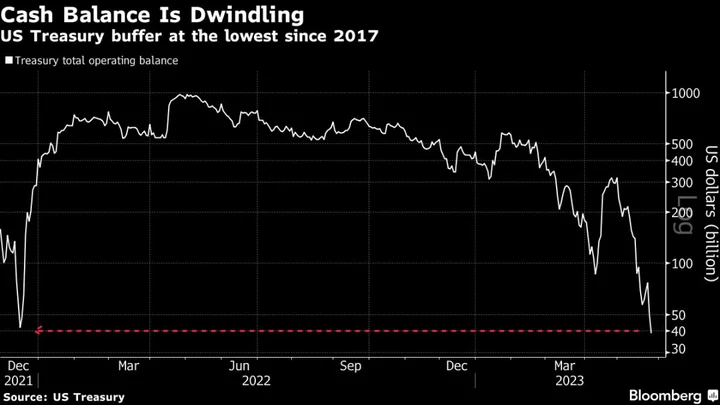
US Stock Futures Rise, Dollar Subdued on Debt Deal: Markets Wrap
US stock futures advanced as appetite for risk taking returned to global markets following the deal between President
2023-05-29 07:28

What’s in the cliffhanger deal struck by Biden and McCarthy to raise the debt limit?
Weeks of sniping back-and-forth between the White House and the Republican majority in the House of Representatives has finally yielded a deal: America will not default on its debt obligations, should Congress act and pass the legislation before Thursday. On Saturday, House Speaker Kevin McCarthy and Joe Biden announced the end of negotiations and the agreement upon a deal late into the evening, with the text of the legislation itself soon to follow. The new compromise both touches on Republican priorities while also safeguarding Joe Biden’s legislative accomplishments. But it comes after weeks of bitter fighting. Republicans accused the White House and congressional Democrats of out-of-control spending, ignoring their rivals’s derisive reminders about the debt incurred by a GOP-led tax cut passed in 2017 that largely benefited wealthier Americans. Democrats, meanwhile, blamed Republicans for holding the country’s credit rating and ability to pay its loans hostage, and for seeking cuts to social welfare programs like food assistance for needy families. As we inch closer to Thursday’s deadline, let’s take a look at what leaders in Washington have come up with to break the deadlock. No more debt drama (for now) The first and most significant achievement of this deal: it raises the debt ceiling through the end of 2024. That guarantees the GOP won’t be able to wage a fight over the issue again, particularly as the presidential campaign season heats up later this year and into the next. Any debt ceiling battle during campaign season, particularly in the summer or fall of 2024, would take Joe Biden off the campaign trail and put his focus firmly on Washington at a time when either of his likely general election opponents, Donald Trump and Ron DeSantis, would be free to continue their politicking. In total, the deal calls for raising America’s debt limit by $4 trillion. Signing away that leverage for the next year is already proving to be one of the toughest pills for congressional conservatives in both the House and Senate to swallow, especially given the lack of other major concessions in the pending legislation. Spending caps The GOP’s big win in the negotiating process, this legislation is set to freeze federal spending at the current level, with the exception of military funding, through 2024. And growth of that spending will be capped at 1 per cent if Congress cannot agree upon a stopgap spending deal in January of 2025. This is a significant restriction for the federal government over the next year, and notably puts in place much stricter spending limits than members of Congress agreed to during the last debt limit fight in 2019. The language allowing for defence spending to increase while domestic programmes face a spending freeze is already irking progressives, who have long argued that the US military’s bloated budget should be at the top of the list for reforms. Caps set by this compromise are simultaneously the biggest victory for Republicans as well as their failure; while the spending caps are certainly more than what Democrats were demanding, they also eliminate the possibility of Republicans using the debt ceiling to make real cuts to programmes already implemented by the Biden administration as part of the Inflation Reduction Act and other legislation. That means that Mr Biden’s 2021-2022 legislative agenda will remain largely intact, despite demands by conservatives to roll back huge parts of it, like efforts to forgive student loans or expand green energy production. Work requirements for food stamps One of the GOP’s efforts to stem the tide of federal spending is centred around the issue of providing food assistance to low-income families. The new legislation is set to expand work requirements for the SNAP programme from the current age cap of 49 to a new cap of 54, meaning that Americans within that age bracket will have to prove employment to receive benefits. The issue may seem oddly specific for Republicans to hold up America’s ability to pay its debts upon, but tightening the restrictions fo federal assistance has long been a target of the GOP, and originally the party wanted to expand those work requirements to Medicaid as well. The new work requirements will sunset in 2030, unless extended before then by a GOP Congress. IRS funding halted The other specific ask that Republicans managed to secure in their compromise with the White House was a halt, at least in part, to a plan to fund new hiring initiatives at the Internal Revenue Service (IRS), America’s tax collection agency. The beleaguered agency was set to receive more funding for agents that the federal government said were to assist taxpayers with filing issues and shore up the IRS’s capabilities; Republicans painted the issue instead as an effort to hire an army of IRS auditors to go after taxpayers for suspected fraud, a non-starter for the party that has long sought, particularly among its conservative wing, to diminish the power and capabilities of both the IRS and other federal agencies. But some conservatives are already complaining that the cuts aren’t enough. Congressman Chip Roy exclaimed angrily after the deal was announced that “98%” of the funding for the expansion of the IRS’s services would still go through. Covid aid The deal has one more minor win for Republicans — a provision to return Covid aid funding that has yet to be appropriated. Millions of dollars in this aid still remains unspent by the federal government, though Democrats have used it thus far to fund a number of federal health programmes which they warn could face cuts if the aid is rolled back entirely. Read More Debt ceiling agreement gets thumbs up from biz groups, jeers from some on political right President attends 2nd grandchild's graduation as daughter of Biden's late son leaves high school Democrats look set to back debt limit deal – while right-wing threatens to blow it up AP News Digest 8:40 a.m. Debt-ceiling deal: What's in and what's out of the agreement to avert US default Asylum-seekers say joy over end of Title 42 turns to anguish induced by new US rules
2023-05-29 05:46
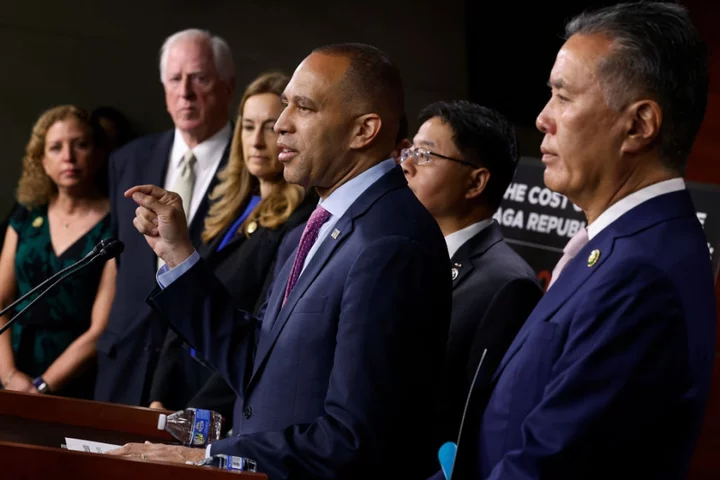
Democrats look set to back 11th hour debt ceiling deal – while GOP right-wingers threaten to blow it up
House Speaker Hakeem Jeffries sounded confident that Congress would vote to avert a default on the US’s obligations on Sunday, hours after news broke that the White House had reached a deal with Republican leadership to raise the debt ceiling. The “agreement in principle” was announced Saturday evening after much of the House of Representatives and Senate had left for the Memorial Day weekend. A handful remained in Washington to continue negotiations ahead of the deadline; the US Treasure Department estimates that the federal government’s ability to pay its debts will be in question come 1 June — this Thursday. Mr Jeffries spoke on CBS’s Face the Nation on Sunday. While he cautioned that he had not seen the actual text of the bill, which is reportedly set to cap funding for the US government (except for the military) through 2024, he offered a simple “yes” when asked directly if he could guarantee that the US would avert default. It’s a statement that will likely mean a sigh of relief for those Americans worried about the effects that a credit downgrade would have on the US economy, though that remains a possibility thanks to the toxic partisanship that brought the US to this point in the first place, but also one that may frustrate progressives and other Democrats who may see the development as Democrats giving in to the GOP’s demands. The deal does stave off further debt ceiling negotiations until 2025, but many on the left simply wish to do away with the limit altogether. And there’s already signs that many on the conservative right do not like the deal, with some even calling any legislation that raises the debt limit a non-starter. Their opposition within the GOP’s slim House majority necessitates votes from Democrats to pass this deal or any other. More follows...
2023-05-28 23:49

InfraBuild Secures $350 Million Loan For Purchasing US Assets
InfraBuild Australia Pty, part of Sanjeev Gupta’s metals empire, has secured an asset-backed term loan for $350 million
2023-05-28 23:26
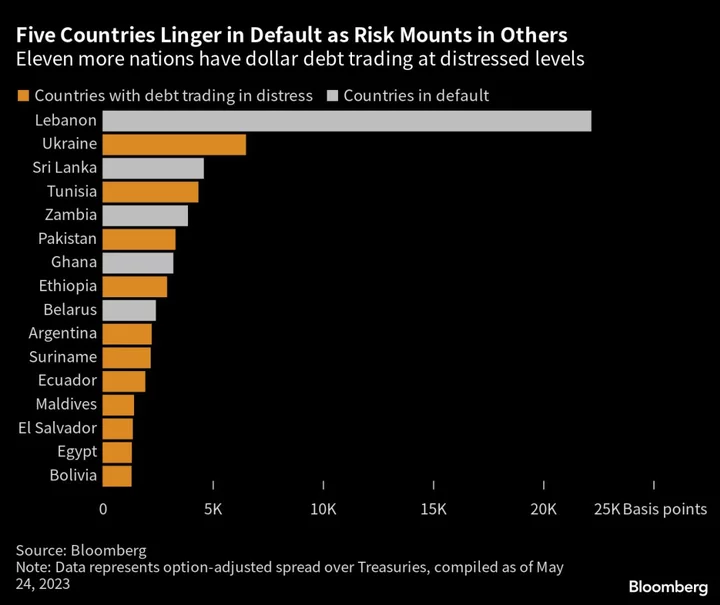
The Frantic Push to Solve Sovereign Debt Crises Irks Wall Street
A shakeup is brewing in the $1.6 trillion universe of emerging-market sovereign debt — whether Wall Street likes
2023-05-28 20:56

Rolls-Royce May Cut Thousands of Jobs in Turnaround Plan, The Times Reports
Rolls-Royce Holdings Plc could cut thousands of jobs after the company hired consultants led by McKinsey & Co.
2023-05-28 20:27
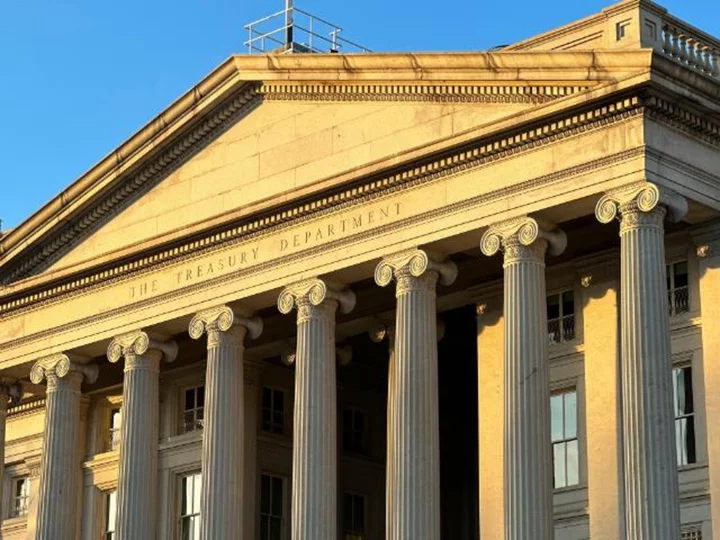
This is the calamity Washington is trying to avoid with a debt ceiling deal
As debt ceiling drama in Washington continues to unfold, the US could reach a day when it can't meet its financial obligations. In the debt limit fight, a missed payment is different than a debt default.
2023-05-28 17:20

Investors react to tentative US debt ceiling deal
NEW YORK U.S. President Joe Biden and top congressional Republican Kevin McCarthy have reached a tentative deal to
2023-05-28 11:16
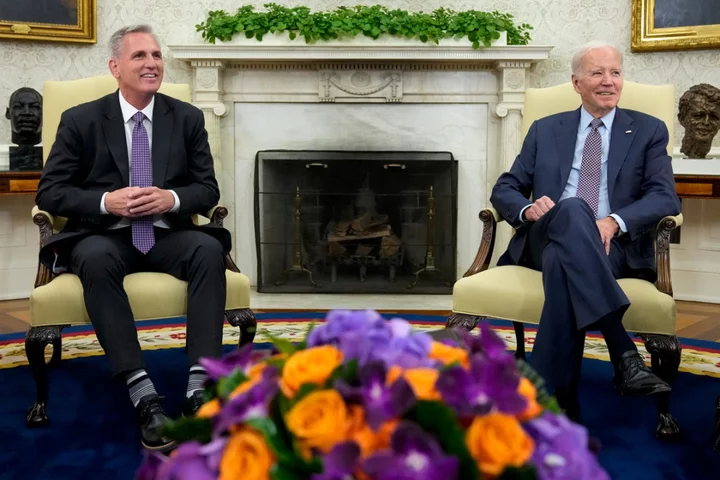
Debt ceiling deal reached between Biden and McCarthy
President Joe Biden and House Speaker Kevin McCarthy have reached a tentative agreement to avert a catastrophic and unprecedented default on America’s sovereign debt, ending a monthlong standoff that threatened the US and global economies. The White House said Mr Biden and Mr McCarthy spoke by phone for roughly 90 minutes late Saturday. The president also spoke with Democratic congressional leaders as the talks between the White House and the Republicans who control the House of Representatives entered final stages after days of back-and-forth over GOP demands to add work requirements for food assistance and other programs meant to help lower-income Americans. One source familiar with the matter described the president and the House Speaker as having come to an “agreement in principle” that would limit federal spending while raising the nation’s statutory debt limit by an amount large enough to keep the issue off the table through the November 2024 general election. More follows...
2023-05-28 09:27
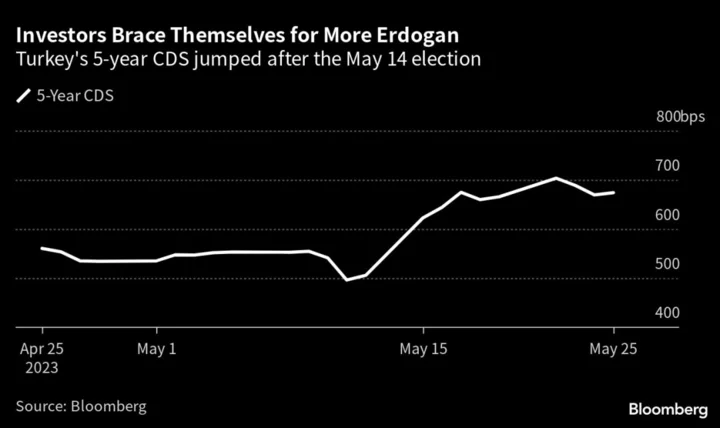
Erdogan Seeks to Seal Victory in Run-Off for Turkish Presidency
Turkish President Recep Tayyip Erdogan is aiming to drive home an election victory to extend his rule well
2023-05-28 08:20
